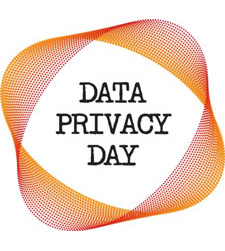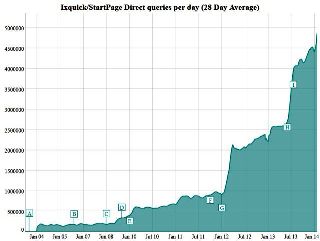It’s not so much about having something to hide, it’s about having something to protect.

International Data Privacy Day is held on January 28 each year.
Tuesday, January 28, is Data Privacy Day.
Now, some might say that having a day to celebrate privacy is like having a day to celebrate, well, the Great Pumpkin, or the fact that Santa is coming! It’s a children’s fantasy, a moment of feel-good make-believe.
Data Privacy Day is supposed to be about ways to “empower and educate people to protect their privacy and control their digital footprint,” but many tech observers have come to the realization that we are all co-conspirators in our own privacy violation.
That’s not just the result of our carelessness or inattention or bad online password practices, it is as the result of going online in the first place.
From cyber-criminality to targeted advertising, from corporate spies to commercial retailers, from government agencies to technology developers, it seems almost everyone is looking at our online activity. And not just looking: our digital fingerprints are being tracked, collected, stored, analyzed, cross-referenced and re-purposed, often without our knowledge and often by entities unknown to us.
Many people do not worry about data privacy: ‘I’ve got nothing to hide’, they say, ‘Doesn’t bother me.’
Hoping it will make a difference and open some eyes, others will ask, ‘Do you have nothing to protect? What about your name, address, charge card, vacation plans, medical history, daughter’s school records, personal bank account?’

StopWatching.us is a coalition of more than 100 public advocacy organizations and companies, mostly in the U.S.
So personal privacy officers and data protection advocates want you to observe the best practices online, not because they think you have something to hide, but because there is much of value online, and we all want it protected.
Things move fast on the Web, of course, and even a good list of privacy protection tips can become quickly outdated technologically, but still be based on strong and successful principles.
For those who want to do more than follow safe tech practices, there are some new products and services that promise greater privacy protection for users.
In observance of this day, StartPage and Ixquick are reminding people everywhere how their privacy is put at risk every time they use one of the “big three” search engines, and not only because of their browser vulnerabilities.
Top search engine companies store detailed profiles about their users and their searches, in order at the very least to serve highly-targeted advertising to them. For that reason alone, if not the fact that certain intelligence agencies may tap into that search data, many Web surfers have switched to so-called privacy-friendly search engine services.
StartPage and Ixquick had a noticeable traffic uptick about the same time that Edward Snowden began leaking details of government Internet snooping programs, like PRISM.

This graph shows a spike in the use of online tools like web browsers, said to provide greater privacy protection.
StartPage and Ixquick are based in Europe, where some rigorous legal protection for personal data privacy is found. As such, the new search tools do not record user identifiers like IP addresses or search results, and they say they use no tracking cookies. Encryption tools and proxy servers are used by the sites to deliver some five million searches a day.
Other tools for greater online privacy protection have been developed here in Canada and elsewhere, each presenting a way to bring greater data privacy and online security to all users. In some cases, these new tools are open source, so the inner workings are visible and accessible, and they are community-based, not privately owned.
Among the new tools are Strongbox, Tor, DeadDrop, Commotion, and D-Central. Toronto’s Citizen’s Lab is central to the development of such tools, like Tor, and it is working with leading tech companies around the world (Palantir Technologies, the Open Society Institute, and Oculus Info Inc) to develop even stronger data privacy and online security solutions.
Those who seek better tools for data privacy are also calling for greater transparency and openness from those who manage our networked world.
The Citizen’s Lab is among those calling on Canadian Internet Service Providers, the cable and phone companies, to make more clear the conditions and situations under which they share our online information with government agencies, either foreign or domestic.
As well, some privacy experts are calling on the government itself to be more open with its data policies, and be more focused with its legislative efforts to curtail cyberbullying, for example,
Personal privacy and data protection online surely does depend on the individual user in many ways, and the degree to which he or she is comfortable online, and the degree his or her data is protected. It also depends on the individual user to let others know how and why data should be protected.
Privacy advocates say we all must make choices (like which browser, service provider or country to use) and make statements (like what law, rule or regulation should be in place) to enhance data privacy for all.
Or, as Palantir’s CEO Dr. Alex Karp says, “There is no point in having a war on terrorism if civil liberties are being undermined to the extent that we aren’t willing to fight that war.”
He sure makes it sound much more serious than the Great Pumpkin ever was.
-30-
submitted by Lee Rickwood



